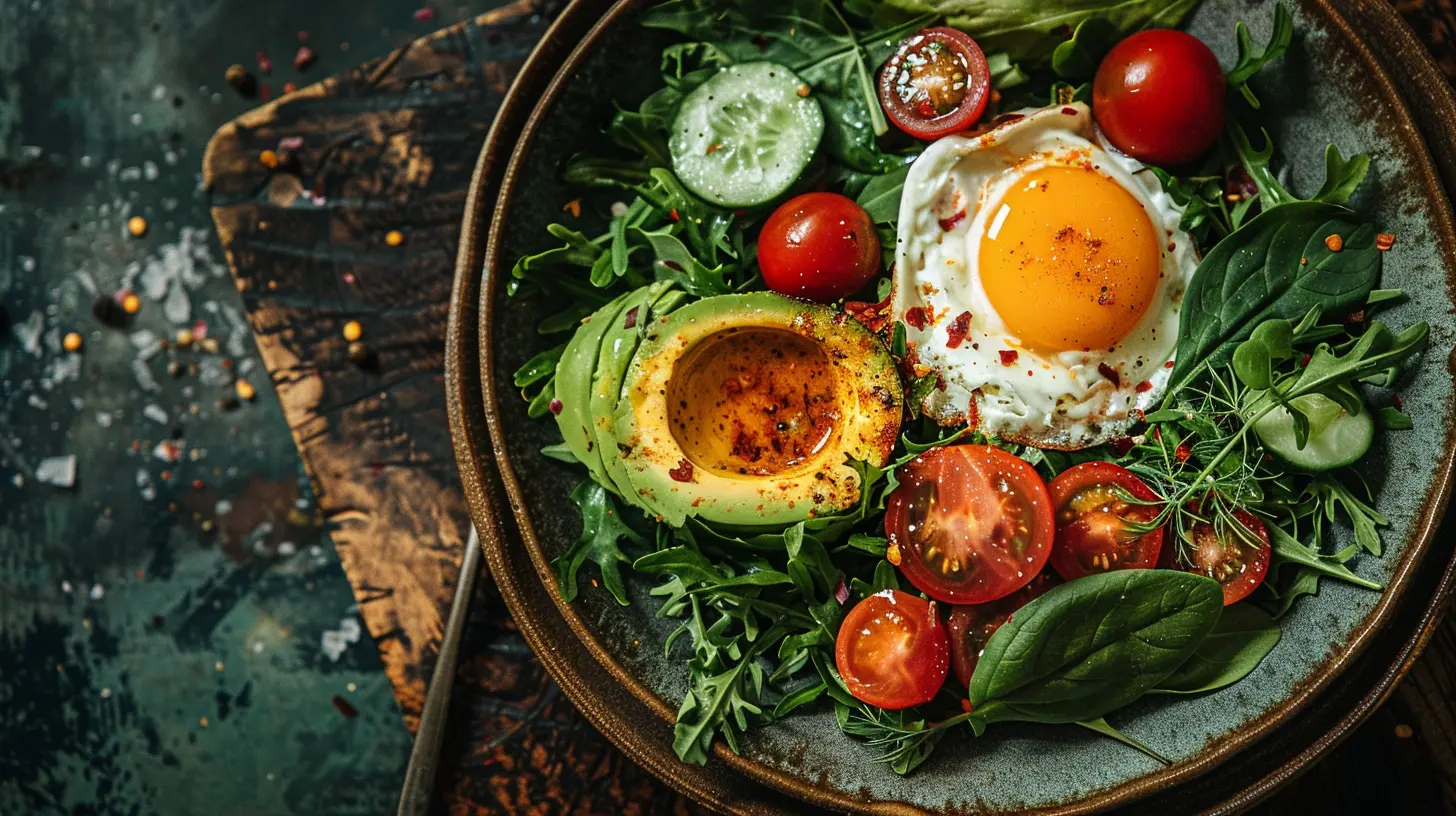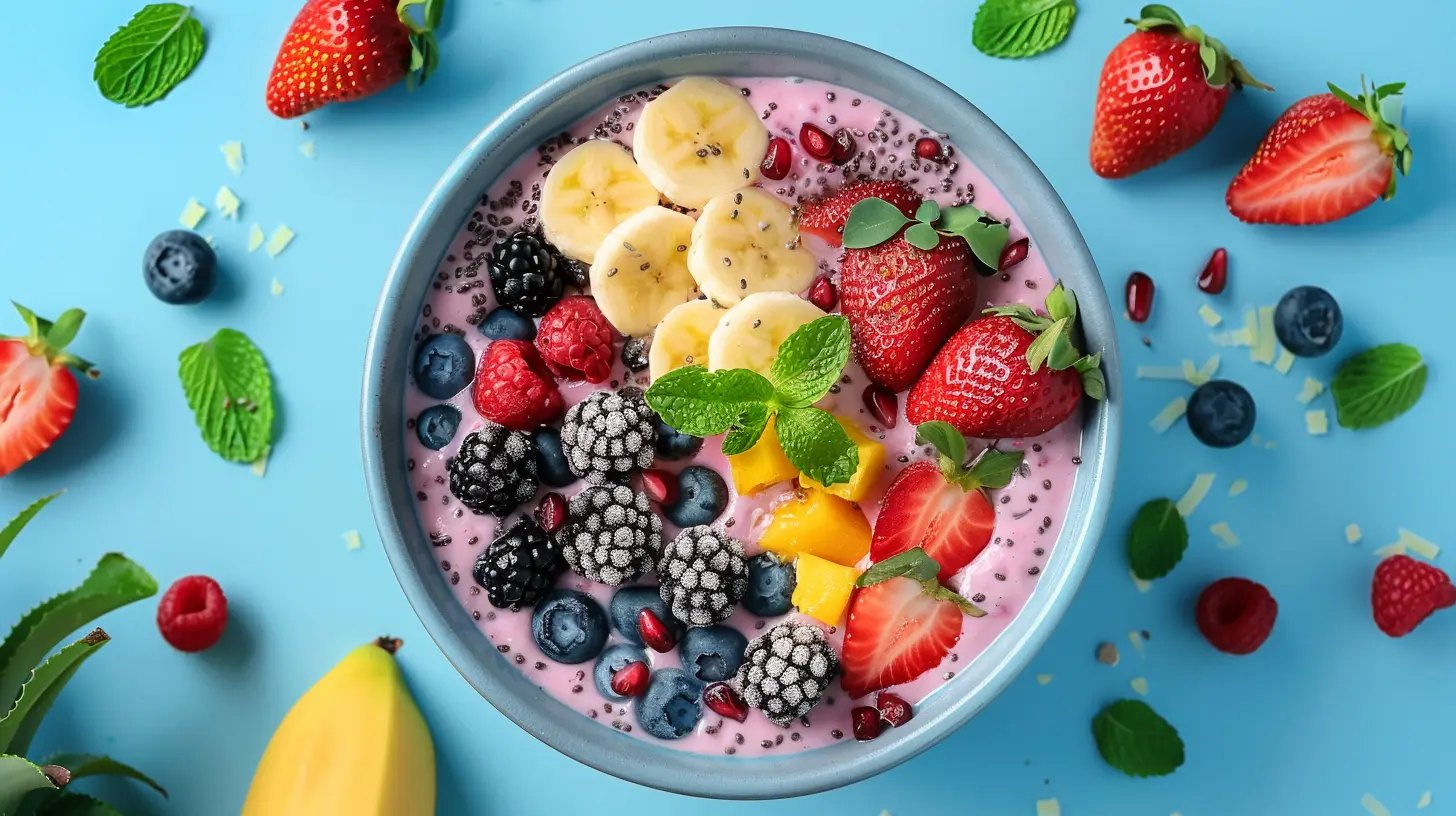22 December 2024
Running is more than just putting one foot in front of the other—it’s a lifestyle, a passion, and often, a means of achieving personal goals. Whether you're training for your first 5K, chasing a marathon personal best, or simply running for the joy of it, your nutrition plays a starring role in your success. Think of your body as a high-performance car: to function at its best, it needs the right fuel.
So, if you're ready to lace up those trainers and crush your next run, keep reading. Let’s dive into actionable, easy-to-follow nutrition tips that’ll help you stay energized, recover faster, and hit all your running goals like a pro. 
Why Nutrition Matters for Runners
Before we talk specifics, let’s get something straight: running is demanding—physically, mentally, and nutritionally. When you're pounding the pavement or trails, your body burns fuel like a furnace. Without the right nutrients, you might feel sluggish, struggle to recover, or even risk injury.But with a smart nutrition plan? You’ll have the energy of a rocket and recover like a superhero. In short, the right nutrition isn’t just about eating “healthy.” It’s about eating smart and tailoring your diet to support your training and performance. 
The Essential Nutrition Tips Every Runner Needs
1. Carbs Are Your Best Friend
Carbs sometimes get a bad rap, but they’re absolutely crucial for runners. Think of them as the primary fuel for your internal engine. When you run, your body taps into glycogen (stored carbs) to keep you moving.Without enough carbs, your glycogen stores can deplete, leaving you feeling like you’ve hit the infamous “wall.” Nobody enjoys running through quicksand, right?
How to Maximize Your Carb Intake:
- Choose Complex Carbs: Oats, brown rice, quinoa, and sweet potatoes are all winners. These provide slow-releasing energy to power your runs.- Don't Skip the Simple Carbs, Either: Bananas, dates, and energy gels are great pre-run or mid-run options for a quick energy boost.
- Timing Matters: Load up on carbs the day before a long run or race (hello, pasta night!) so your energy stores are topped off.
2. Protein for Recovery and Strength
As a runner, you’re constantly putting stress on your muscles. Protein swoops in like a repair crew to rebuild those tiny tears and help your muscles grow back stronger.But here’s the deal: runners don’t need as much protein as bodybuilders, so don’t go overboard. Stick to consistent, moderate amounts.
Sources of Runner-Approved Protein:
- Lean meats like chicken and turkey- Fish, especially salmon (bonus points for those omega-3s!)
- Plant-based options like lentils, beans, tofu, and tempeh
- Dairy or dairy alternatives like Greek yogurt and cottage cheese
3. Hydration Is More Than Just Water
Let’s be real: we all know staying hydrated is important. But did you know you need more than just plain water? When you sweat buckets on a long run, you’re losing essential electrolytes like sodium, potassium, and magnesium—and these are critical for avoiding cramps and keeping your energy up.Hydration Hacks for Runners:
- Drink water throughout the day, not just when you feel thirsty.- Add an electrolyte drink or salt tablet on longer runs (anything over 60 minutes).
- Eat water-rich foods like cucumbers, oranges, and watermelon to boost hydration levels.
4. Fats: The Unsung Hero of Endurance
Fats often get overshadowed by carbs and protein, but they’re an essential part of your diet. Healthy fats provide long-lasting energy, facilitate the absorption of vitamins, and support overall health.Add These Healthy Fats to Your Plate:
- Avocados (because, let’s face it, who doesn’t love guac?)- Nuts and seeds like almonds, walnuts, chia, and flax
- Fatty fish such as salmon or mackerel
- Olive oil drizzled over your salads
5. Timing Is Everything
What you eat is important, sure, but when you eat can make or break your runs. Eating the wrong thing at the wrong time can leave you bloated, sluggish, or—worst of all—making a beeline for the nearest bathroom mid-run.Pre-Run Nutrition Tips:
- Eat a small meal or snack 1-3 hours before your run. Aim for carbs with a touch of protein.- Examples: A banana with peanut butter, oatmeal with honey, or a slice of toast with avocado.
Post-Run Recovery:
- Refuel within 30-60 minutes after your run with carbs and protein to replenish glycogen stores and repair muscles.- Examples: A protein smoothie with fruit, chocolate milk (it’s a runner’s classic for a reason!), or grilled chicken with sweet potatoes.
6. Don't Ignore Micronutrients
Macronutrients (carbs, protein, fats) steal the spotlight, but micronutrients play a big role, too. These vitamins and minerals help boost energy levels, support recovery, and keep your immune system strong.Key Micronutrients for Runners:
- Iron: Helps carry oxygen to your muscles. Find it in spinach, red meat, and lentils.- Calcium & Vitamin D: Support bone health to keep you injury-free. Sources include dairy products, leafy greens, and fortified plant-based milk.
- Magnesium: Reduces muscle cramps and aids recovery. Get it from nuts, seeds, and dark chocolate (yes, chocolate can be good for you!).
7. Listen to Your Body (It’s Smarter Than You Think)
Let’s get one thing straight: there’s no one-size-fits-all approach to nutrition. What works for your running buddy might not work for you—and that’s okay. Your body is like a wise old mentor; it’ll tell you what it needs if you just pay attention.Feeling sluggish? Maybe you’re low on carbs. Craving salty snacks? You could be dehydrated. Experiment with your diet during training (not on race day!) to figure out what makes you feel like the best version of yourself.
8. Don’t Fear Treats (You Earned Them!)
Running burns a ton of calories, so it’s okay to indulge every once in a while. In fact, enjoying your favorite foods—whether it’s a slice of pizza, a gooey brownie, or a bowl of ice cream—can be a great way to stay motivated. Just remember: moderation is key.
Bonus Tips to Elevate Your Nutrition Game
- Meal-Prep Like a Champion: Having healthy snacks and meals ready to go can save you from reaching for junk food when hunger strikes.- Consider Supplements: If your diet is lacking in certain areas (like iron or B12 for plant-based runners), talk to a healthcare provider about supplements.
- Experiment During Training: Avoid trying new foods or drinks on race day—stick to what you know works.

Final Thoughts
Smashing your running goals isn’t just about training harder—it’s about training smarter. Nutrition might not seem as exciting as a new pair of running shoes or a shiny watch, but it’s the secret sauce that powers every mile.By fueling your body with the right balance of carbs, protein, fats, and micronutrients (and staying hydrated!), you’ll feel unstoppable out on the road or trail. Remember, small changes can lead to big results. So, get out there, experiment with these tips, and start crushing those running goals like the rockstar you are!









Damian McKeever
Great tips! Nutrition plays a crucial role in enhancing performance and recovery. Remember, fueling your body with the right nutrients not only boosts your energy but also keeps you motivated. Stay consistent, listen to your body, and enjoy the journey! Keep running strong!
March 15, 2025 at 4:05 AM